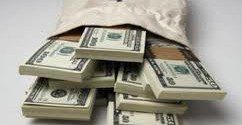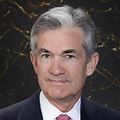Central banks around the world are getting involved in digital currencies, but some are further ahead than others. In this infographic, we visualize the state of each central banks’ digital currency effort.
Read More »What Are Non-fungible Tokens (NFTs)?
NFT stands for “non-fungible token” and hundreds of millions of NFTs are bought and sold each week. Last March, for example, an NFT of a picture on the internet so for $69M on the internet so just what is an non-fungible token?
Read More »10 Tips for Making a Crypto Transaction at a Bitcoin ATM
If you're looking to buy and sell quickly, a cryptocurrency ATM may be a better solution. Here is a quick guide on how to make the most of your crypto transaction with a Bitcoin ATM. Read on!
Read More »Continued M2 Contraction Could Devastate the Markets
The economy and stock market have been built on massive stimulus and liquidity from a rapidly expanding money supply. With M2 growth decelerating last month, the stock market looked in trouble. Now that it has become a contraction, the effect could be very profound.
Read More »We Are On the Cusp of a Historic Financial Earthquake – Here’s Why
The USD’s days of unchallenged dominance are quickly coming to an end - something even the Fed Chairman openly admits - which means we are likely on the cusp of a historic financial earthquake that could alter that direction of the U.S. forever and mark the biggest economic event of our lifetimes.
Read More »Debt-to-GDP Ratio by Country: The Top 10 Most Indebted Nations
Since COVID-19 started its spread around the world in 2020...global governments have had to increase their expenditures to deal with higher healthcare costs, unemployment, food insecurity, and to help businesses to survive. Countries have taken on new debt to provide financial support for these measures, which has resulted in the highest global debt levels in half a century...[Below is a] debt-to-GDP data by country from the most recent World Economic Outlook report by the IMF.
Read More »Why SWIFT Matters To Russia
There are 862 individual SWIFT codes of Russian origin, belonging to somewhere around 300 financial institutions out of a total in the bank network of 11,000 and removing them from the network would prevent those banks from using the network to facilitate transfers.
Read More »What Is Fed Tapering? How Does It Work? How Does It Impact the Economy?
This infographic shows how Fed tapering works, and its impact on the economy.
Read More »The World’s Biggest Private Tax Havens
When the world’s ultra-wealthy look for tax havens to shield income and wealth from their domestic governments, where do they turn? Here are the world’s top 20 tax havens, as ranked by the 2020 Financial Secrecy Index.
Read More »The Biggest Ponzi Schemes EVER
Ponzi schemes are a type of financial fraud that lures investors by promising abnormally high returns. To help you learn more about these sophisticated crimes, this infographic examines some of the biggest Ponzi schemes in modern history. The scheme is named after Charles Ponzi, an Italian who became infamous in the 1920s for claiming he could double his clients’ money within …
Read More » munKNEE.com Your Key to Making Money
munKNEE.com Your Key to Making Money








